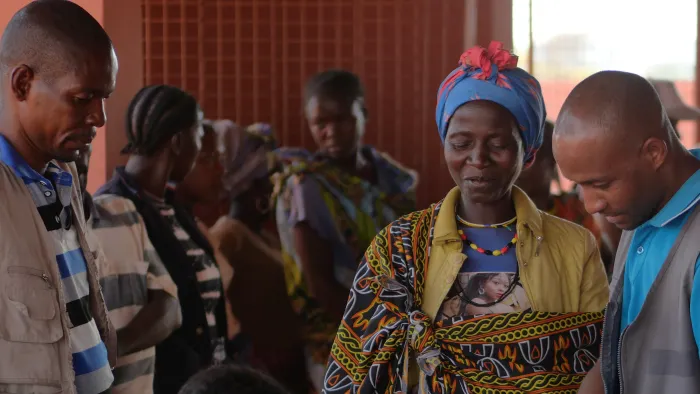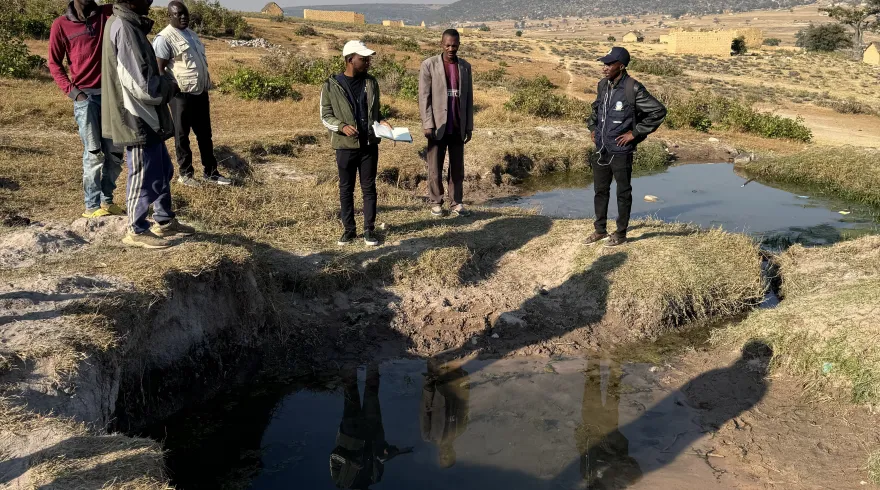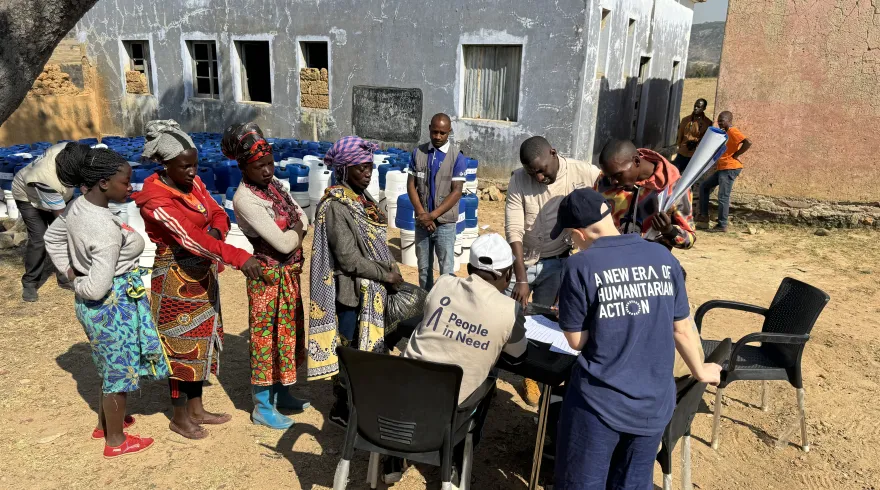
Anticipation of Food Insecurity in Angola: Start Fund Alert 822
Over the past seven years, recurrent droughts in Angola have increased in severity, resulting in food insecurity and cases of chronic malnutrition across the country. The 2023-2024 El Niño phenomenon exacerbated the chronic drought situation in the southern provinces, and disrupted seasonal rain patterns between late 2023 and early 2024.
In November 2023, above average rainfall led to flooding and caused crop destruction, leaving farmers from the flooded areas with few, or no seeds to re-plant. This was followed by unseasonably weak rainfall in early 2024 which coincided with the second planting period, between February and March. The rains that were expected to support crucial crop growth ceased prematurely. As a result, crop development was poor, and yields were too low to meet the needs of dependent households.
ALERT RAISED IN ANTICIPATION OF FOOD INSECURITY
In May 2024, Start Network members raised an anticipatory alert to the Start Fund for food insecurity due to irregular rainfall patterns driven by the El Niño phenomenon, the decline in agricultural production and increased food prices. Alerting agencies projected a peak in the food insecurity crisis in August 2024, emphasising that anticipatory actions could be crucial while other funds – such as the UN Central Emergency Response Fund (CERF) – began to mobilise.
In July 2024, the Start Fund team visited the project, to learn more about the crisis and to hear directly from the implementing agencies, partners, and the affected communities.

This is the only natural water source for multiple households living in the village of Neves, in the municipality of Humpata, where People in Need distributed WASH kits to support with water transport, storage and hygiene.
THE RESPONSE
People in Need, in consortium with World Vision, were awarded £400,000 to implement a Start Fund project in anticipation of food insecurity in Huila Province, in southern Angola.
People in Need and World Vision focused their efforts on the WASH sector, rehabilitating 18 broken water points across the two municipalities of Humpata and Chibia to ensure uninterrupted access to clean and safe water ahead of the crisis. For each of the rehabilitated water points, committees were formed and trained, so that communities themselves could manage access and maintenance. Vulnerable households living around the rehabilitated water points received non-food items (NFI) kits, containing bleach, jerry cans, buckets and soap.
The project assisted approximately 30,000 people.

A crucial water point was rehabilitated in the municipality of Chibia. The water point had been set up in 2016 but needed repairs and maintenance for years, as reported by community members and World Vision staff.
WHY PRIORITISE WATER AND HYGIENE
The consortium focused on guaranteeing safe water supply, so that the communities could rely on these water points throughout the period of food insecurity and drought to irrigate crops, prepare food, and maintain hygiene. Some of the water points, located in more rural areas of the targeted municipalities, included drinking troughs for animals which could be used for cattle.
The focus on water and hygiene was also chosen in view of the CERF allocations, which were under discussion at the time of the Start Fund alert. In June 2024, UNICEF and World Food Programme (WFP) were allocated funding from CERF to respond to food insecurity in the Huila and Cunene Provinces. As both UNICEF and WFP’s projects were going to focus more on livelihood support and nutrition, People in Need and World Vision’s focus on WASH was intended to fill a potential gap in the overall response to the crisis.
During the Start Fund visit, community members explained that food insecurity was driven by the combined effects of the flooding from late November 2023, insufficient rainfall in early 2024 and the ongoing drought.

People in Need staff are distributing WASH kits in Neves, a commune located in the Municipality of Humpata.
ADDRESSING THE CHALLENGES IN ANTICIPATORY ACTION
As part of this learning trip, the Start Fund team met with several key stakeholders in the country to discuss the needs and challenges of anticipatory action.
A representative from a regional NGO mentioned that access to forecasting information can be challenging in Angola, particularly in ensuring that it reaches district and local levels on time. As a result, information about hazards that could be forecast often reach communities with too little lead time for anticipatory or early action.
This was backed by a UN agency representative who suggested that difficulties in terms of forecasting were also due to the insufficient number of meteorological and gauging stations throughout the country.
Our conversations with key stakeholders highlighted that while challenges and barriers to anticipatory action remain, there are opportunities to address them and improve response efforts. Forecasting capacity needs to be enhanced in at-risk countries to ensure that data is collected and shared promptly. Similarly, channels and opportunities for data sharing across government levels and actors on the ground need to be prioritised. Strengthening these systems is crucial to ensure that forecasts are available, at-risk communities can be informed in time, and support can be coordinated efficiently and effectively.
According to the World Bank’s Disaster Risk Finance report on Angola from May 2024, weather-related crises are forecast to increase in both frequency and severity in coming years. Ahead of further potential crises induced by weather and climate events, strengthening anticipatory action is key to ensure that communities can be reached in a timely manner and be better prepared to face shocks such as food insecurity.
